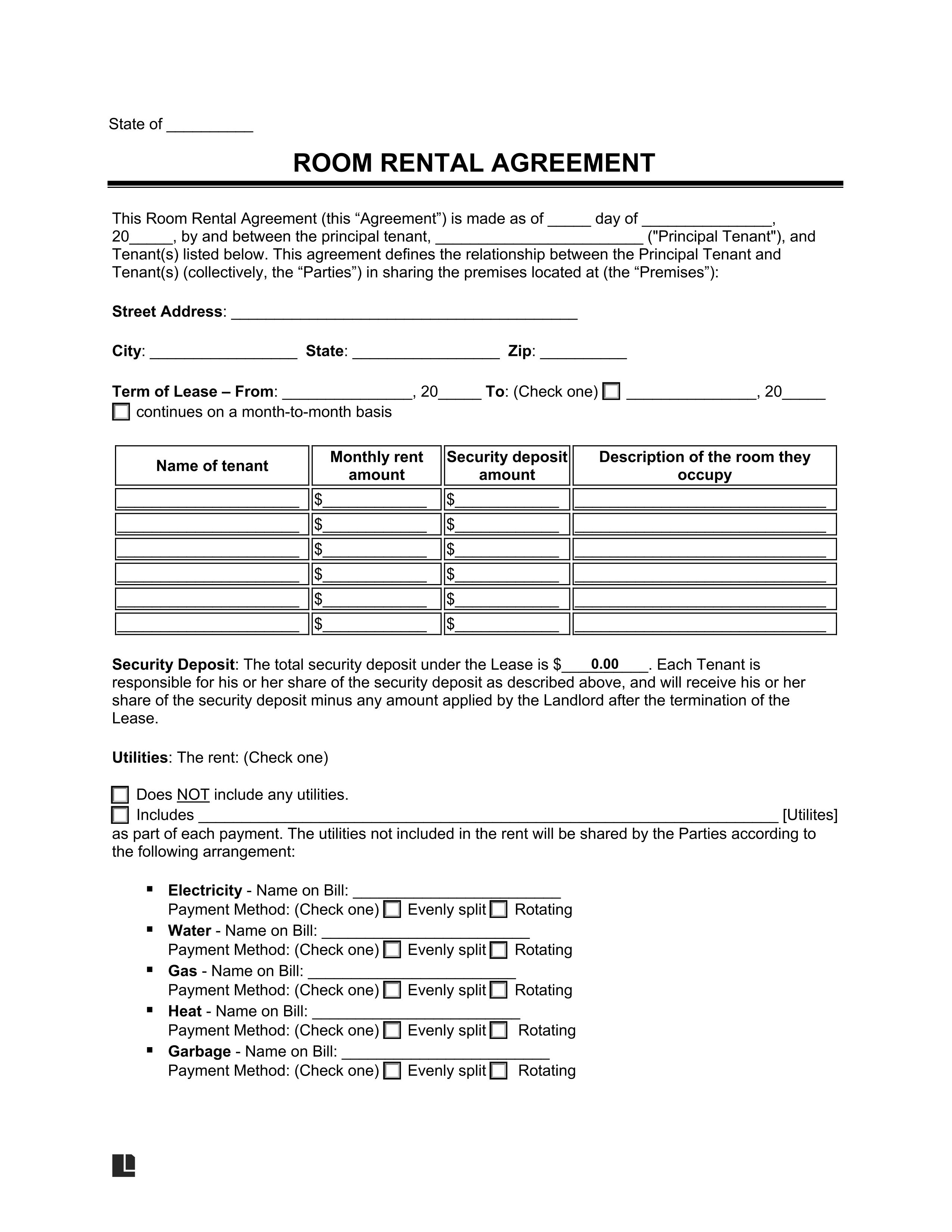If you are a home-owner or a building manager looking to make some extra income, then you might be thinking of leasing your room out to a third party. However, you might be concerned about cases of overdue rent, damages, or negligence by your tenants.
This is why if you are looking to lease your room or apartment, you should draw up a room rental agreement. This agreement will not only act as a legally binding document regarding the rules and responsibilities of the two parties, but it will also help you establish a peaceful living environment in your house. Keep reading to learn everything you need to know about room rental agreements.
What Is A Room Rental Agreement And Its Use?
A room rental agreement is an important document that is legally binding on those who sign it. Such an agreement is usually made between a tenant who wants to rent out or lease their apartment or room to a third party looking to rent a space to live in.
A room rental agreement, otherwise known as a room lease agreement or a room leasing agreement, generally sets out all the rules and responsibilities of both parties and ensures that these rules and responsibilities are carried out through specific duties and obligations that are imposed upon them.
A generic room rental agreement is always written, which is why it is honored by law. This is very important as such a document will protect the rights of the tenant and also ensure the financial obligations of the tenant when moving into a rented space.
Key Elements Of A Room Rental Agreement
A basic room rental agreement incorporates certain key elements within it. These elements include:
- Personal information: The name, address, and contact information of the landlord and the tenant/s, including the words “Landlord” and “Tenant.”
- Premises: The address and description of the rented space.
- Dates: The date from which the agreement begins till when it ends.
- Rent: The amount of rent you charge, the date when the rent is due, and the fees charged for late rent, as well as the amount of security deposit.
- Utilities and parking space: If and what utilities are included in the rent, including the number of parking spots allotted.
- Sublease: Under what conditions the tenant can sublease the room.
- Damages: The tenant’s responsibilities for damages and how the cost of damages shall be shared if the source cannot be easily determined.
- Duties and Obligations: What chores and responsibilities the tenant has towards the rented property.
- Renter’s insurance: A statement that the tenant will get renter’s insurance and provide you with proof of the insurance.
- Permissions: The various permissions for tenants, including pets, guest timings, and so on.
Room Rental Agreement Vs. Roommate Agreement
A roommate agreement, otherwise known as a roommate rental agreement or a roommate contract, is slightly different from a room rental agreement. The basic differences between the two are as follows:
- A roommate agreement is used when a new roommate moves into the rented space, while a room rental agreement is used when a tenant wishes to sublet their room to a third party.
- A roommate lease agreement usually does not need the landlord's permission, while a room rental agreement requires the landlord’s approval of the sublease.
- A roommate contract is entirely independent of the original rental agreement, while a room rental agreement incorporates elements of the original room lease agreement.
Why And When Is A Room Rental Agreement Required?
A room rental agreement is extremely important to clarify certain expectations and obligations of both parties, and if you are a home-owner, a business manager, or a principal tenant who is looking to promote a harmonious living environment within the rented space. Generally, room lease agreements are drawn up in certain specific situations. These situations include:
- To clarify household expenses and costs between the parties.
- To clarify the respective maintenance duties of the parties.
- To set clear boundaries with regards to significant others staying over, guests, and parties.
- To establish a quiet environment and avoid complaints regarding noise.
A room rental agreement is therefore required to avoid unnecessary complications between the involved parties. Drawing up an agreement will help you avoid paying undue costs for rent, damages, and maintenance. It will also help you keep track of your borrowed personal properties and give you due notice if one of the parties wishes to depart early. Most importantly, room rental agreements are important to maintain a harmonious environment and prevent strained relationships between the parties.
If you are looking for a generic room rental agreement template, CocoDoc has got you covered. Check it out now.
